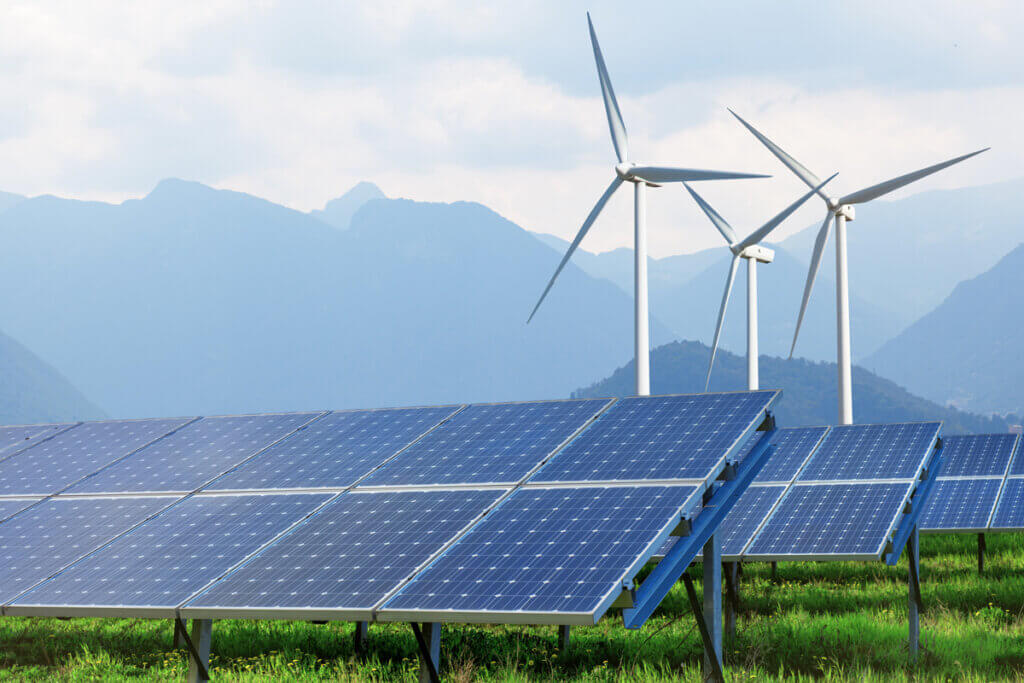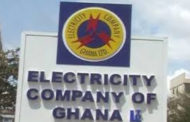The Deputy Minister for Energy Andrews Egyapa Mercer has said, Ghana is preparing to transition from the use of petroleum products to renewable energy in the few years to come in line with the global agenda to decarbonize.
This is in line with the Paris Agreement and the 26th United Nations Climate Change Conference of Parties (COP26) which enjoined countries for a net-zero future by 2050.
Speaking at the Eastern Regional Forum for a national energy transition plan in Koforidua, the Deputy Energy Minister said, the government of Ghana deems it necessary to hold the nation in readiness for the fast-changing trends in the global space to ensure that Ghana thrives irrespective of the energy transition in short and long term impact.
He said the government is also cognizant of Ghana’s status as a signatory to the Paris agreement and its active participation in the global climate-related forum and the resulting obligations Ghana bares.
The Deputy Minister said therefore that, a coordinated and strategic approach to the energy transition in the Ghanaian context is imperative.
“In line with the aforementioned, the Ministry of Energy is developing a National Energy Transition Plan to guide the country as its transition to cleaner energy. The government holds the views, perspectives, and opinions as vital to voice out this national plan hence the need for stakeholder engagement for this natural this we believe will ensure that the plans formulated is sustainable, locally appropriate and feasible to implement”.
Andrews Egyapa Mercer stated that in the interim whiles Ghana awaits the formation of the energy transition plan, the ministry has resolved that fossil fuels particularly natural gas will continue to be part of Ghana’s energy mix, however, strategies will be put in place to increase the share of renewable energy in medium to long term.
“Currently, about 70 percent of Ghana’s generation installed capacity of 5,321MW is from a thermal plant that uses natural gas as their primary fuel. This proportion is projected to increase to meet the growing energy demand commensurate to energy demands and national economic growth”
He stressed that Government acknowledges that, the transition to cleaner Energy in the next few years will require substantial resources. That, paucity of such resources in Ghana could affect the immediate transition to cleaner energy therefore, the government will leverage revenues from indigenous oil and gas resources to develop the cleaner energy the world advocates.
“As part of the plans for Ghana’s transition, we will continue to explore and develop oil and gas in a more environmentally friendly manner. we Will enforce the zero flaring policy and carbon capture utilization and storage technology to ensure that petroleum activities do not adversely impact the environment. Afforestation programs and carbon credits will also be introduced as measures to avoid further pollution to the environment by oil and gas production activities “.
He said in the short to medium term, fuel stations and combustible engine cars cannot be abandoned therefore Tema Oil Refinery is going to be revamped to avoid shortage as refineries in Europe serve notice to fold up in coming years to transition to renewable energy.
“Fuel stations and combustible engine cars cannot be abandoned in the short, medium-term even though the world is fast moving to electronic vehicles. The government is therefore working to revitalize Tema Oil Refinery to meet our domestic demands and reduced our dependency on imported petroleum products thereby guaranteeing fuel security in the country”
The Deputy Energy Minister also added “Ghana Petroleum Hub Development Corporation has also been established to develop the petrol chemical industry to provide materials required to manufacture solar panels, wind blades, and battery cells. This will contribute to our net-zero agenda without compromising the benefits of the petroleum industry.
The government is aggressively developing and utilizing clean energy sources such as solar, wind and nuclear. Since 2017, the government of Ghana through the Bui power authority and Volta river authority has made these strides as the renewable energy leaders. The total renewable energy mix is 100mw which is 2.4% of the national energy mix”.
Some participants raised concerns over concomitant job losses during the transition to clean energy, possible shortage of petroleum products since refineries across the world will fold up in the next few decades, as well as revenue shortfalls as Ghana’s petroleum industry is still fledging.
A representative from the Renewable Energy systems department of Koforidua Technical University, KTU, at a roundtable discussion called for modeling of all Ghana’s renewable energy and establishing modalities for a successful transition.
Inputs from the forum which will be held across the country will be used to draft the Ghana Energy Transition Plan towards our commitment to the Paris Agreement and the 26th United Nations Climate Change Conference of Parties (COP26
Source: Mybrytnewsroom.com/Obed Ansah




















































